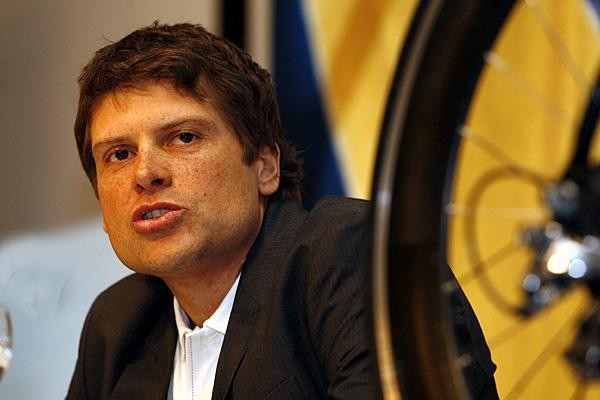German cycling under siege
German cycling is struggling and hoping desperately to be saved. When did it all start? With Jan...

German cycling is struggling and hoping desperately to be saved. When did it all start? With Jan Ullrich's downfall, assisted by the Freiburg Clinic doctors? Or Patrik Sinkewitz's positive test and subsequent confession? However it happened, the sport is suffering in all its aspects, as teams and races disappear rapidly from the scene. Cyclingnews' Susan Westemeyer looked at the problems.
June 30, 2006 – The whole thing started with a news flash on German radio: Jan Ullrich thrown out of the Tour de France and suspended by T-Mobile Team for his involvement in Operación Puerto. The German had been named in the scandal from the very beginning but maintained his innocence throughout. His story dominated the German media that summer, with details of Hijo Rudicio, his alleged doping plan for the Tour and a police search of his home while on his honeymoon, all distracting from any actual racing going on. A DNA test was finally made the end of January and was followed only weeks later by his bitter announcement that he was retiring. His DNA was subsequently matched to blood bags taken from Dr. Eufemiano Fuentes' office.
One result of these problems was a new management at T-Mobile Team. Team Manager Olaf Ludwig departed involuntarily and was replaced by Bob Stapleton, a newcomer from the USA who promised a "new beginning" for a clean sport, supported by a strong anti-doping programme. The team ran into problems as early as spring 2007, as the story of team doctors' Andreas Schmid and Lothar Heinrich' participation in team doping in the 1990's slowly and painfully unfolded. It culminated in a tear-filled press conference in Bonn, Germany, the end of May, with Erik Zabel and Rolf Aldag confessing to their past doping practices and T-Mobile announcing that it would – despite everything – continue its sponsorship through 2010.
The next two blows to German cycling came from outside of T-Mobile, although both involved former riders of the team that was then known as Team Telekom; Matthias Kessler, who hadn't been offered a new contract by T-Mobile when the team changed hands, had gone with Andreas Klöden to Team Astana. Kessler's positive test for testosterone shortly before the Flèche Wallonne led to a two-year suspension, announced in January.
Get The Leadout Newsletter
The latest race content, interviews, features, reviews and expert buying guides, direct to your inbox!

Laura Weislo has been with Cyclingnews since 2006 after making a switch from a career in science. As Managing Editor, she coordinates coverage for North American events and global news. As former elite-level road racer who dabbled in cyclo-cross and track, Laura has a passion for all three disciplines. When not working she likes to go camping and explore lesser traveled roads, paths and gravel tracks. Laura specialises in covering doping, anti-doping, UCI governance and performing data analysis.